#Taiwanese Movie Review
Explore tagged Tumblr posts
Text
Themed Movie Reviews: Taiwan LGBT Movies on Netflix
After watching “Marry My Dead Body,” I decided to finally tackle my list of the gay Taiwan films available on Netflix: “Eternal Summer,” “Your Name Engraved Herein,” and “Dear Ex.” Here are my reviews for them. ~ Warning! Spoilers! Taiwanese Movie Review: “Eternal Summer” 盛夏光年 shèng xià guāng nián (2006) ~ “Eternal Summer” is the oldest of the three and my least anticipated. Kang Cheng-hsing…
#Asian Movie Review#盛夏光年#Dear Ex#Eternal Summer#誰先愛上他的#LGBT#LilVakaVivLu#netflix#Taiwanese Movie Review#Your Name Engraved Herein#刻在你心底的名字
0 notes
Text
Drama Rec: Let's Talk About Chu
And my love affair with Taiwanese dramas continues. What better show to watch after the hilarious I Am Married...But! than Let's Talk About Chu (LTAC), a sex dramedy that offers a refreshingly frank and unpretentious examination of what makes relationships meaningful in today's disconnected world.
youtube
Plot-wise, the show follows the Chus, a tight-knit family who happen to have one thing in common: they're all sexually (and romantically) frustrated. The mother and father have a deeply resentful relationship made worse by its lack of sex. The oldest sister yearns for the emotional and sexual connection she used to share with her husband, whom she had a torrid affair with back when she was his student at university. The middle son is stuck in an unsatisfying relationship with a boyfriend whose lifestyle is incompatible with his own--and in more ways than one. The youngest sister, a wannabe sex education influencer, masks her insecurities about relationships by trying to maintain a strict separation between her sex and love life.
And then there's sex. Lots of it.
But what makes LTAC unique is how the show uses sex as a vehicle for deeper character work and social commentary. Through parallel storytelling, each episode uses its characters' sexcapades as a metaphor for the importance of intimacy and being able to understand and communicate one's needs inside and outside the bedroom. It's sex positive and provides audiences a lighthearted but deft take on taboo topics like STDs, infidelity, polyamory, impotency, etc. Because of this, it's one of those rare ensemble dramas where each relationship is interesting and poignant. It's never just about sex and at the same it is.
Final Verdict: Well written and acted, LTAC is an easy watch that still manages to be insightful and touching. Tired of shows that moralize and/or downplay the importance of sex? This might be the one for you.

Side Note: Although the show is realistic in its tone, some of the sex scenes are decidedly not (where's the lube and foreplay, y'all?). However, one scene had me cackling at 3:00am in the morning because it was so delightfully out of pocket--I thought Japan had cornered the market on scenes like that--but also kind of sweet?
As usual, TWdramas inviting the full spectrum of emotions lol
68 notes
·
View notes
Text
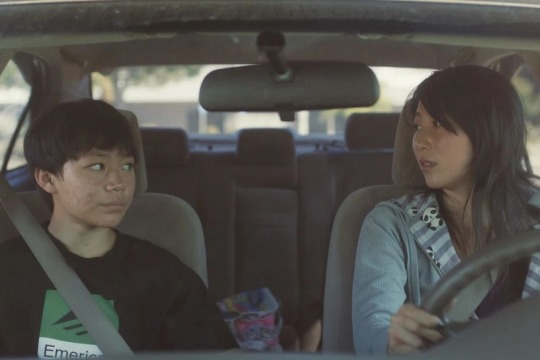
Dìdi (弟弟, dir. Sean Wang).
Set in the recent past of the summer of 2008 in the Bay Area, [the] Oscar-nominated Taiwanese-American first-time filmmaker [...] takes his own experiences growing up to tell a tender coming-of-age story. Wang's small-scale, semi-autobiographical indie drama is rich with details of its time period featuring juvenile humour about friendship, crushes, and fitting as the son of an immigrant mother.
#didi#izaac wang#sean wang#didi movie#focus features#dìdi#dìdi movie#joan chen#shirley chen#indie film#indie movie#movie review#movies#movie#film#film review#cinema#taiwanese-american#taiwanese american#asian-american#asian american#aapi
6 notes
·
View notes
Text
Taman-taman (Park) (2024) Review
Director: So Yo-hen
Runtime: 101 minutes
Language: Indonesian and Javanese audio; Mandarin (繁體) and English subtitles
Certification: PG13 (Singapore; smoking scenes)
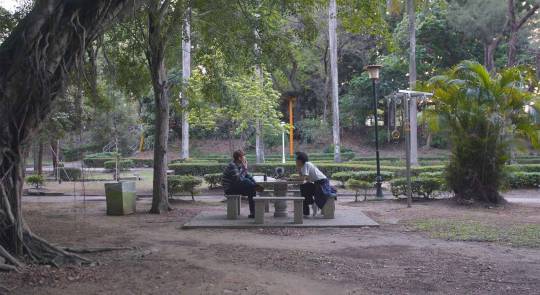
Via SGIFF.com
Can Taman-taman (Park) be considered a documentary? The film seemed like one to me as I watched it. But there were some elements that felt contrived. Still, it won three prizes at the 14th Taiwan International Documentary Festival (TIDF) earlier this year. “The Grand Prize of the Asian Vision Competition goes to a more or less non-fiction film,” says the jury comments. I like that description: “more or less non-fiction”.
Well then, it’s a documentary talking about the experiences of Indonesian migrants in Taiwan. I say “talking” because that’s what the bulk of the film depicts: two Indonesian men, Asri and Hans, having conversations in Tainan Park. It’s mostly through their conversations and through poetry rather than visuals that we learn about what they and fellow migrants experience.
Asri contributes much of the poetry presented in Taman-taman, including a poem about a worker who picks up his girlfriend on an electric scooter. We do get to see Indonesian scooter enthusiasts hanging out in the park, and a group—either the same one or another—singing together, but other than these, we don’t observe the discussed events. Though using this elliptical technique can make the audience feel detached, it means the film avoids exploitation of the subjects’ struggles for the sake of drama, a risk of documentary filmmaking.
Speaking of the scooter enthusiasts, they appear in one of those parts that feels contrived. Because it is. After Asri and Hans talk about the scooterists, they get up from a table and walk through the park. Scooterists soon circle around them in a neat line, and the two carry on as if nothing’s unusual. In a Q&A session at the 35th Singapore International Film Festival (SGIFF35), director So Yo-hen said that the first time they shot this scene, some scooterists did appear but not as many. After the filmmakers got more scooterists, Asri and Hans repeated the scene.
I’m guessing the decision to recreate the scene this way was to maintain viewer interest. I recall hearing light laughter from the audience at this moment.

But I wonder if there’s some other reason for the fictional elements in the film. For example, the radio station that Asri and Hans pretend to run, inspired by stones with embedded speakers found around the park. The two sit in a guard hut when they “host” their radio show. With its bright red lightbulb acting like an on-air sign, the hut does look as if it could be a studio. Hans blends Indonesian and Mandarin to come up with the name Ini Radio Yinni, meaning “This is Radio Indonesia”. The concept of the programme is to share stories of Indonesian migrants in Taiwan, accompanied by readings of poetry inspired by these experiences.
In a Facebook post from May, Asri says that the Taman-taman “film project sought to give voice to the experiences of migrant workers in Taiwan, with all the ups and downs of their lives”. So why blend fiction and reality? Why not use non-fiction material only? Why do we mainly hear about the experiences of migrant workers through Asri and Hans, and not through the people they speak about as well?
According to a bio provided by the 12th Momentum biennale, So Yo-hen and his filmmaking group Your Bros. “take filmmaking as a method to re-interpret reality.” In film critic Jason Tan Liwag’s review of Dorm (2021), a previous work by the group, he states that “documentary is not reality itself, but a reflection, refraction, and reconstruction of an accumulation of experiences.” Maybe this is what Your Bros. are trying to get the audience to remember.

Throughout Taman-taman, the filmmakers remind us that what we see is through their lenses. The opening scene directly shows us one crew member who’s helping to set up the shot. We also hear a voice telling Asri and Hans, who describe their roles in the film as “actors”, that they can start. Each time Ini Radio Yinni “airs”, the hosts tell listeners not to worry if they see people filming in Tainan Park, because the film might not actually be made. In the last scene that Asri appears in, there’s crew members onscreen again—well, the shadows of them and their filmmaking equipment are onscreen, all following Asri.
After my first watch, I thought it was unlikely that I’d write a full-length review of Taman-taman. I related to Asri during a scene in which he and Hans discuss their thoughts on the project so far. Asri says he’s tired of filming and doesn’t even understand what message the filmmakers are trying to convey. I couldn’t see where the film was going and was getting bored. On the other hand, Hans seems satisfied with the idea of letting the audience come up with their own ideas and says that the more he works on this project, the more interested he gets.
In the process of writing this review, I realised Taman-taman is more intriguing than I originally thought. I still relate more to Asri’s confusion than to Hans’ playful curiosity, though.
Rating: 3.5/5
Thank you to SGIFF for the Cinephile Pass and for the screenings of Taman-taman.
#film review#movie review#film criticism#sgiff#sgiff35#35th singapore international film festival#taman-taman (park)#taman-taman#公園#taiwanese cinema#taiwanese film#documentary#docufiction#so yo-hen#蘇育賢#your bros. filmmaking group#你哥影視社
3 notes
·
View notes
Text
Tiny Review: Abang Adik 2023. Tragic brotherhood in Malaysia.

I like how the end feels cathartic and tragic at the same end. Done well by having each brother embody each feeling.
I love the details. The eggs, the comb, the shirt. They all brought tears to my eyes 😭

Abang Adik (Malay: 'Abang Adik'; Chinese: 富都青年, lit. 'Pudu Youngsters') is a 2023 Malaysian-Taiwanese neo-noir crime drama film written and directed by Jin Ong in his feature directorial debut. It stars Wu Kang-ren and Jack Tan, with Serene Lim, April Chan, Tan Kim Wang, and Bront Palarae.
#abang adik#abang adik movie#malaysian movie#taiwanese movie#drama movie#jin ong#wu kang ren#jack tan#serene lim#april chan#tan kim wang#bront palarae#movie review#2023 movies
4 notes
·
View notes
Text

Marry My Dead Body (2022)
This movie honestly surprised me. I went into it knowing fully well that it was not BL and hence I was not expecting to be very invested in it. The movie started off with action scenes and corny jokes that really set the atmosphere for what the rest of the movie was going to be like. The direction and camera-work really did convey the comic nature of the film and I was just watching it for entertainment purposes for majority of the movie. The leads were pleasant to look at, the acting was really nice and the plot was plotting somewhere even if some of the twists were kinda obvious.
I did not like the nudity aspect of the film much as I did not see how exactly it added to the story? But it was not overdone and hence did not take anything away from the story. Perhaps I did not like the use of nudity for comedy purposes.
It is honestly a good movie to watch for time-pass. It is not something you'd get invested in for the plot. But it definitely offers comfort characters, found family (kinda?) and corny humor that really does make you feel good. And there is character development that progresses in a sensible manner and is honestly quite heart-warming to witness. It is a light-hearted movie.
That being said, I was absolutely not expecting to BAWL MY EYES OUT during the last 20-30 mins of the movie. I did not see that coming and it was a pleasant surprise.
"I'm talking to my husband"
THE WAY I SCREECHED AND THEN BROKE DOWN SOBBING DURING THAT SCENE.
Man, definitely not what you'd expect from the atmosphere the movie has set right from the beginning.
At first, the stereotyped representation of the LGBTQ+ community did kinda put me off. But it was handled really well and so cornily that you even forget to be be offended for the rest of the movie.
The movie is.......warm. It is yellow. That's how I want to describe it. Despite the corniness (I've used the word corny a lot; I can't think of a better word) of it all, there are scenes that are serious and meaningful and it has all been managed so delicately and so beautifully.
The actor who plays Ming-han emotes really really well and I was constantly in awe of his acting throughout the film. I laughed with him and cried with him and got mad with him and felt embarrassed with him. It was such a pleasure to watch him on screen.
Definitely a comfort-watch and I'm pretty sure I will find myself re-watching the last 30 mins in the near future just for the feels.
Overall, 7.9/10.
100% would recommend.
#marry my dead body#lgbtq community#lgbtq representation#taiwan#taiwanese movie#greg hsu#austin lin#gingle wang#comedy#mystery#movies#movie review
4 notes
·
View notes
Text
Incantation.
Spoilers ahead. I have to be honest with you guys, this is the 3rd time I have tried to watch this movie. The first time I had a friend over for a horror movie Sunday, we got bored about half way through and turned it off, I tried again by myself a few months later and fell asleep. But everyone raves about how good this movie is, so I really want to give it a fair shot and at least judge it based…
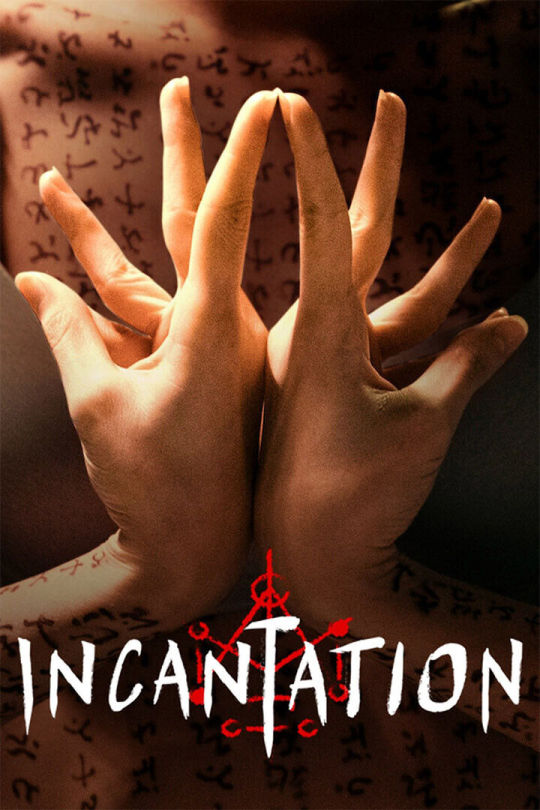
View On WordPress
#Che-wing Chang#Horror#Horror Movie Reviews#horror movies#horror review#Incantation#Kevin Ko#movie reviews#movies#Netflix#Netflix horror#reviews#Taiwan horror#Taiwanese horror
2 notes
·
View notes
Text

The Sadness [6?/10]
Wow!! (ノд`) This was so gorey… and icky.. The plot of “viral pandemic turns people evil” leaves the impression that the movie is cliche, however this movie definitely does leave a strong impact !!
Scenes of violent were so carefully illustrated that it made you gag!! It was just too bloody… not to mention the scenes of assault… (╥_╥) It definitely shows you just how extreme the virus can turn people!!
The ending was quite sad… and I wish the main character didn’t experience any struggles, or at least found a safe space..
I would not watch this again!! (And I mean this in a good way..) The visuals are like nightmare-fuel, but it does leave an impact. Still in shock!!
#movie blog#movie horror#movie ratings#horror movie#movie review#movies#horror film#horror#horror movies#taiwan#taiwanese drama#taiwanese film#taiwanese movie#the sadness#scary stories#scary#scary movies#reveiw#ratings#my personal opinion#personal opinion#my opinion#opinion#my thoughts#i love movies#blogging#blog#visual archive#internet archive#digital diary
0 notes
Text
Movie Review: Didi Directed by: Sean Wang Runtime: 1 hour and 33 minutes

Sean Wang’s Didi is a tender and introspective coming-of-age story that explores the complexities of identity, family, and self-discovery. Set during the summer of 2008, it follows the 13-year-old titular character, a Taiwanese American boy, as he navigates the last stretch of childhood before high school begins.
Didi is at an impressionable age, and the film poignantly captures the small yet transformative moments that define adolescence. From learning how to skate to experiencing his first crush, Didi’s journey is one of growth and self-expression. But at its core, Didi is also a story about family—specifically the bond between Didi and his mother.
Didi’s mother is a deeply layered character, masterfully portrayed by Joan Chen as both protective and quietly longing. She has sacrificed her dreams of being an artist to devote herself to her son, a decision that informs their relationship in profound ways. Her love is unwavering, but it’s tinged with the melancholy of a life redefined by responsibility. This dynamic adds emotional depth to the film and serves as its beating heart.
While Didi is filled with powerful and relatable moments, it struggles with pacing. Certain scenes feel drawn out, and the narrative occasionally drags, making the relatively short runtime feel longer than it is. A tighter edit could have enhanced the film’s impact, allowing its emotional highs to resonate more effectively.
Despite these flaws, Didi shines in its authenticity. Wang’s direction is sensitive and observant, capturing the nuances of teenage uncertainty and the quiet struggles of immigrant family life. The nostalgic 2008 setting adds a layer of charm and relatability, especially for viewers who grew up in the same era.
Though it’s not without its shortcomings, Didi is a heartfelt exploration of love, sacrifice, and the bittersweet transition from childhood to adolescence. Its emotional core and cultural specificity make it a film worth watching, even if it occasionally falters in its execution.
Rating: C-
0 notes
Text
Recently Viewed: The Assassin
[The following review contains MAJOR SPOILERS; YOU HAVE BEEN WARNED!]
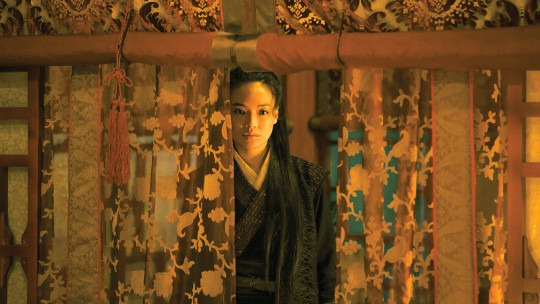
While The Assassin is often classified as a wuxia film, it is anything but conventional. Hou Hsiao-hsien omits many of the structural and stylistic elements traditionally associated with the most formulaic version of the genre (as established by the likes of King Hu and Chang Cheh), instead emphasizing pure visual splendor.
The movie is not, however, just an empty spectacle; on the contrary, every image is dense with meaning, conveying theme, conflict, and characterization not through tedious exposition, but rather through the juxtaposition of stillness and movement, the elegantly purposeful shot composition, and the poetic rhythm of the editing. Consider, for example, the early scene that I’ve excerpted below. Notice how the protagonist is literally “boxed in” by her surroundings as her mentor admonishes her for apparently lacking the conviction to kill without hesitation or remorse—reflecting how she feels trapped by her duties and obligations.


When the conversation is essentially repeated later in the narrative, albeit under drastically different circumstances—our heroine has grown more openly rebellious, blatantly and unapologetically disobeying explicit orders—the framing is significantly wider. Additionally, the rigid architecture is replaced by a sprawling natural landscape—which is gradually obscured by thick, billowing mist as the relationship between master and subordinate grows increasingly turbulent.



I realize that I’m not contributing much commentary here, but the written word is simply incapable of adequately describing the appeal of a story that is so inherently, fundamentally cinematic; those screen grabs speak clearly enough for themselves.
Ultimately, The Assassin features the exact tone and atmosphere that you’d expect from the director of Three Times, Flowers of Shanghai, and Café Lumière: patient, quiet, and almost hypnotically, seductively contemplative, punctuated by pregnant silences and peppered with poignant ellipses. It is, in short, a martial arts adventure that is as atypical and idiosyncratic as it is profound, transcendent, and unforgettable.
#The Assassin#Hou Hsiao-hsien#Hou Hsiao Hsien#wuxia#martial arts film#martial arts cinema#Taiwanese film#Taiwanese cinema#film#writing#movie review
1 note
·
View note
Text
Asian Movie Review: Marry My Dead Body
~ Warning! Minor Spoilers! Taiwanese Movie Review: “Marry My Dead Body” 關於我和鬼變成家人的那件事 (2022) ~ REVIEW Since “Someday or One Day” 想見你, Greg Hsu 許光漢 has had a consistent rise in fame and popularity. He is a talented and handsome actor, and I would like to watch more of his works. However, I started “Marry My Dead Body” because two coworkers and I were discussing Chinese superstitions, and one of…
#Asian Movie Review#關於我和鬼變成家人的那件事#許光漢#Greg Hsu#LilVakaVivLu#Marry My Dead Body#Taiwanese Movie Review
0 notes
Text
Drama Rec: I Am Married...But!
Every time I watch Taiwanese dramas I always kick myself that I don't watch more. Netflix's latest I Am Married...But! is such a gem. A romcom with an edge, the drama asks the age-old question of is there really a happily ever after when the fairy tale ends.
youtube
The story follows I Ling, a married woman who contemplates divorce everyday. After falling in love with her husband Xue You in a classic meet-cute, I Ling soon becomes disenchanted with married life and having to manage her in-laws and her sweet but man-child of a husband. The story takes a turn when a work client forces I Ling to sign up for and play with a dating app they've designed, and suddenly she connects with someone who seems to represent everything good and different from her everyday life.
Straddling the line between fantasy (hello, our FL has hotties played by Tseng Ching Hua, Fu Meng Po, AND Jasper Liu chasing after her???) and hilariously painful realism, I Am Married...But! is a great example of the zippy and compassionate storytelling Taiwan is so good at. Apparently, the production team did surveys with real married couples to understand the challenges they experienced post-wedding and it shows with so many moments reminding me of stories from my own IRL married (and newly divorced) friends. And what I especially appreciated is that drama doesn't let I Ling off the hook--she too realizes how she has had a hand in her own misery and that Xue You isn't necessarily the loser she thinks he is. It's not a perfectly crafted drama but it manages to touch upon a lot of taboo topics most romances skip over with equal parts humor and empathy. Marriage is hard and the show offers all its characters some much needed grace in their struggle.
Also, special shoutout to actress Alice Ko who plays I Ling's exasperation with such naturalism and charm. She and all her leading men have crackling chemistry that makes you want to root for the best possible outcome for all of them.
Final Verdict: Would definitely recommend for anyone wanting a light watch that still manages to pull at the heartstrings. It's 12 episodes but the total runtime is around 6.5 hours so perfect for a weekend binge.
Bonus: I can't emphasize enough the eye candy on display in this drama. The casting director deserves a raise.



#I Am Married...But!#I am married but#童話故事下集#alice ko#jasper liu#fu meng po#tseng ching hua#taiwanese drama#tw drama#movie and drama recommendations#final review#meta
55 notes
·
View notes
Text
THE TAG-ALONG 2 Reviews and free to watch online
The Tag-Along 2 is a 2017 supernatural horror film directed by Wei-Hao Cheng (Who Killed Cock Robin?; The Tag Along) from a screenplay by Shih-Keng Chien (The Tag Along; The Fatality; The Victim). Also released as The Haunted The movie stars Rainie Yang, Wei-Ning Hsu and Francesca Kao. Plot: A mother goes in search of her missing teenage daughter after her sudden disappearance. She is told that…
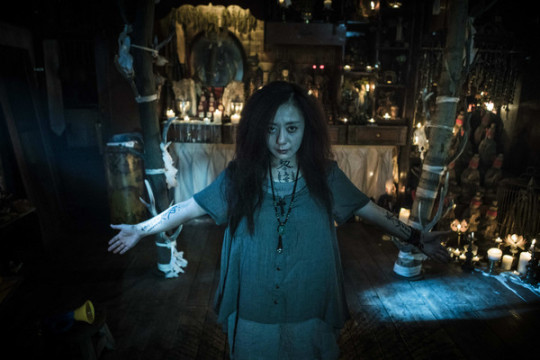
View On WordPress
#2017#free on Plex#free on Tubi#free on YouTube#free online#horror#movie film#Rainie Yang#review reviews#Taiwanese#The Tag Along 2#Wei-Hao Cheng#Wei-Ning Hsu
1 note
·
View note
Text
One Movie From Every Country pt. 5
A few days ago, I got around to watching 1967's Dragon Inn by King Hu, the seminal wuxia film from Taiwan.
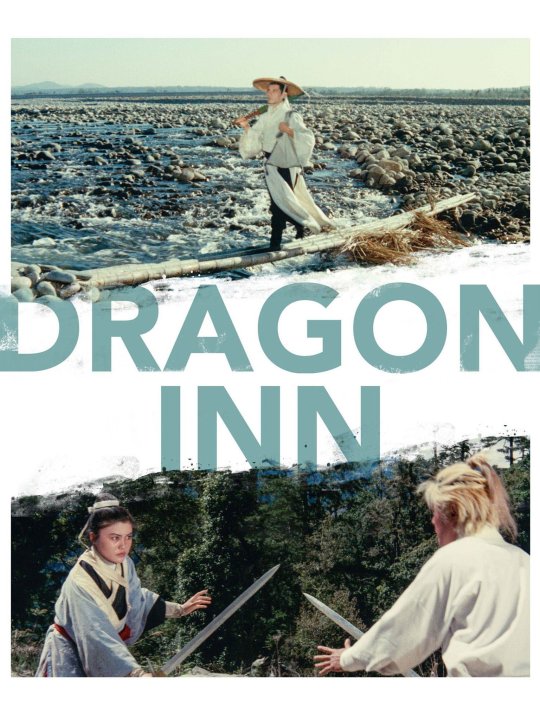
This film tells the story of three highly skilled warriors defending the banished children of a murdered general from further retribution by a power hungry, recently appointed eunuch to the Chinese emperor.
This was actually the first wuxia film I've ever seen, and I kind of just stumbled on it when looking through the Criterion Channel. I'm really glad I watched it though, it was incredibly entertaining. Not only was it great camera work, it had super fun and engaging action sequences which very clearly influenced future action films (John Wick comes to mind).
The characters were also very likeable and I found myself cheering them on at some points. It was just so fun to watch them kick so much ass. And that fight sequence at the end with the eunuch? Such a badass ending.
It was really great, and it definitely gave me an interest in the wuxia genre and I'm super excited to watch more.
8/10
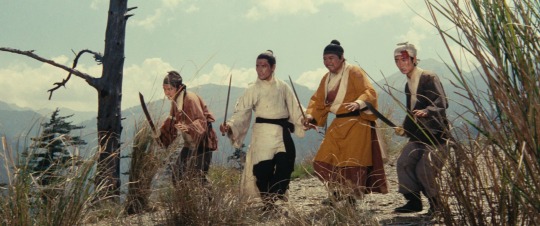

0 notes
Text
MAME & BL Literacies (Part 4)
Other parts: Part 1 | Part 2 | Part 3
Contents:
MAME’s queer characters and their lives
Fetishization of queer men and profiting off LGBT community
Why other queer genres like gei comi struggle to get live action adaptation?
(bonus) What Did You Eat Yesterday sexy times
BL and rape culture
Everyday ethnocentrism & BL
-
This is the last part of this essay series. In this part, I want to discuss the response this review of TharnType by @waitmyturtles generated. As always, corrections and criticisms are welcome.
-
Here are the points @solitaryandwandering raised:
1. fans will get SO rabid for MAME’s stuff yet resist tuning in for more queer-friendly Taiwanese BL or lower heat fare
I think that the BL MAME creates is "queer-friendly". Moreover, her BL focuses on the intersection of queerness with local forms of gender, patriarchy & heterosexism, class, race, skin color, age, employment, location & regionalism, abilities and disabilities, education, health conditions and access to medical care, urban-rural divide, migrant status, culture, etc.
MAME's BL have aspects of Thai queer culture and praxis that are otherwise overlooked. Here's an example.
Through Techno’s interaction with Tharn in episode 1 of TharnType, MAME highlights an important issue: invisibility of androphilic “man”. Techno comments that Tharn is the first masculine presenting androphilic male he has met, even though he has several queer friends.
This is in part due to skewed presence of androphilic male characters in mainstream media. In Thai soap operas and movies, androphilic men are 'presented as effeminate, overreactive, with a passionate but unrequited interest in men'.
Countering this perception is the hegemony of masculine aesthetics in urban Thailand’s queer culture. 'The English word “man” has been borrowed into Thai gay-speak to denote acting in a masculine way. Man describes a masculine presentation of either gay-identified or heterosexual males and contrasts with the Thai term phu-chai, which also translates as “man” but is used in the specific sense of denoting the gender role of a heterosexually identified male.
'Many Thai gays believe that effeminate gay men, or gay sao, will experience discrimination and prejudice because of their feminine characteristics and behaviours. Thai gays also think that performing gender-normative forms of manhood are useful in establishing sexual and romantic relations with other gays. These expectations are associated with the culture of images, known in Thai as phap-phot, by which many homosexual men feel compelled to act in accord with normative male gender roles.'
This is in contrast to Techno’s queer friends who blur the lines between the masculine and feminine domains. His use of the word kathoey is case in point.
Moreover, the need for social conformity for Thai gays in terms of their gender performance is an urban phenomenon. Ethnographic study by Wijngaarden traced the rapid adoption of more masculine gender performance by gay men who moved from rural setting to urban for the purpose of education and employment. Ambiguity in gender performance is more accepted in rural setting where there is gender-based understandings of homosexuality. Also, gay dating scene in urban areas seem to assign value to masculine presentation.
source
I don't really know what @solitaryandwandering mean by "queer-friendly" in the context of Taiwanese BL.
Support of fu-people (BL fans) for queer works in Taiwan is well-known. When the play 《愛情生活》 Life of Love by Xu ZhengPing was staged, they had BL version shows too.
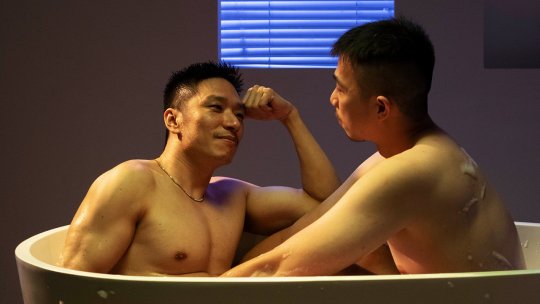
The play has a short film adaptation which is available for free on GagaOOLala.
youtube
Fu-people have also shown their support for series like Breakfast by 想再見你.
-
@solitaryandwandering gave valuable response to this post which I am adding below.
I had to go back and re-read what I said in the post for more context. I think though we may disagree on a couple points (what people consider "queer-friendly" is somewhat subjective) your criticisms are totally valid. I think in my first point I was making a really broad generalization and my description of overall Taiwanese BL as being "more" queer-friendly largely rings false to me now. I think what I was frustrated with was more with what I've seen of BL fandom's response to the series and other works. The popularity of high heat and "problematic" themes (I'm using that pretty liberally) like abusive relationships or rape is pretty massive in comparison to Taiwanese stuff in general. But that's not to say Taiwanese stuff don't utilize the same tropes or themes. Hence why I think my comparison wasn't accurate.
In comparing Taiwanese BL I had seen at the time and MAME's stuff (specifically TharnType) I probably felt that Taiwanese BL didn't so heavily utilize themes which made me uncomfortable or angry at the way MAME was writing it. And I still do largely think that at least for her earlier stuff MAME needed to work on her characters and plots. I did not see Tharn or Type or the other characters or the story as appealing or positive representations of… anything. In my view at the time Taiwanese BL liked to play with similar themes but still (mostly) didn't leave me with a bad taste in my mouth. I don't really agree with what I think was a bit of a limited view at the time. Reading your post has given me a bit of a different perspective, too.
I don't think everyone making Taiwanese BL particularly cares about the response queer fans have haha. And MAME has shown she does, at least from my perspective.
And again lumping an entire country's slant on the genre against MAME's creations is a bit disingenuous. So I appreciate you criticizing that.
And I don't inherently think lower heat stuff is inherently more queer-friendly of course - queer people fuck! Queer people can do terrible things! But the gulf of popularity between high heat stuff versus lower heat at least in international online spaces is pretty large. That concerns me for the reasons I stated in my comments - why is fandom more eager to engage with one over the other? Do these fans see queer men as people or as things to fetishize? And how does MAME's writing encourage or discourage those damaging readings? Largely I think what I was referencing in my response was fandom response rather than what creators at large do.
I think we may disagree on how effectively MAME writes her shows but I do think my perspective on her as a creator has changed quite a lot. Her writing certainly has with each show. It's important to interrogate my own ethnocentrism as you point out in your post. Acting like I'm the arbiter of "good queerness" in stories just because I'm queer is not a practice I want to encourage.
and yes, I do think there is quite a bit of critical consumption of BL, and it has only been growing! I was concerned about those who do not critically consume, a more direct criticism.
But I did communicate it as a large generalization… One of the reasons why my response to stuff like TharnType is this way is because I have a background in domestic violence prevention, so the lens I look at that kind of material through is highly critical. But it is also a white American lens.
-
And here is my contribution to that discussion. I am very grateful for to @solitaryandwandering for engaging with this post.
What each think as “queer-friendly” is subjective. I wanted to be clear about what I thought as queer (since LGBT+ form is a little too narrow from my perspective). I wanted to place BL in the context of Taiwanese tongzhi (queer) culture and wanted to showcase the similarities and their connection. Life of Love by Xu ZhengPing, the tongzhi work I mentioned, has both "high heat" and "problematic" themes (it deals with infidelity) while addressing what it means to be tongzhi in post-marriage equality era. The BL versions’ ad is very funny. Please check out that link if you haven’t.
About abusive themes in BL, I really wish BL audience will pay attention to media consumed by queer people that are made by queer people in BL producing countries and realize how meek MAME is in comparison, both in terms of influence as well as themes. That is why brought up erotic treatment of rape aka rape for titillation – rare in BL but very common & celebrated in queer content from the region such as gei comi and gay pinku cinema. I think that answers the issues you raised – popularity of high heat stuff, queer men as fetish and damage it causes. I have been consuming gei comi and BL for years and when the live action boom happened, I was hopeful that gei comi will also start getting live action adaptation. Instead, there was a deluge of sweet BL and concerns about damage anything problematic can cause, not to mention the kind of critique authors as mild as MAME was getting. When female BL creators were getting bashed (not only about live action but also about comics and novels), I thought the criticisms would extend to gei comi. I was confused when it didn’t. I was even more confused when it seemed like no one was ever mentioning gei comi. It was as though those who were criticizing BL creators don’t know about gei comi.
To be honest, I don’t really know what damage everyone is talking about even now. I mean, what’s the basis of those claims? Gei comi always had those themes, a great deal more than BL. What harm did it ever perpetuate? Whom did it harm? I couldn’t find any evidence (empirical or anecdotal) no matter how I searched. (I will be grateful if you can direct me towards some research or something on the matter.)
Only damage that I know of is linked to the tangible impact of gei comi on the popularity of hairy, gachimuchi aesthetics of queer men [and associated physical manifestations of protest hypermasculinity] in East Asia that I discussed in part 2 of this essay series [as well as in my post on masculinities with special focus on Chinese androphilic men]. This is one area I think a lot of skinny queer men in East Asia would have found themselves at a loss. So I think BL exclusively having skinny dudes is a good thing.
I know that I can wish all I want but audience won’t accept live adaption of something like Fisherman’s Lodge much less Pride (my introduction to the genre and the reason why I fell in love with it). My Brother’s Husband sort of solidified my belief. Then Sei no Gekiyaku [Dangerous Drug of Sex] live action happened, and my worlds collided. All of a sudden androphilic men were discussing a BL like never before. It was such a hit on Netflix Japan. That’s when I discovered The Shortest Distance Is Round and then its sequels. By then it was clear that there is escaping the difference in wavelength.
I would like to make a small addition in light of Heavens x Candy (a 2024 Japanese BL movie, pinku adjacent that is available for streaming on Gagaoolala).
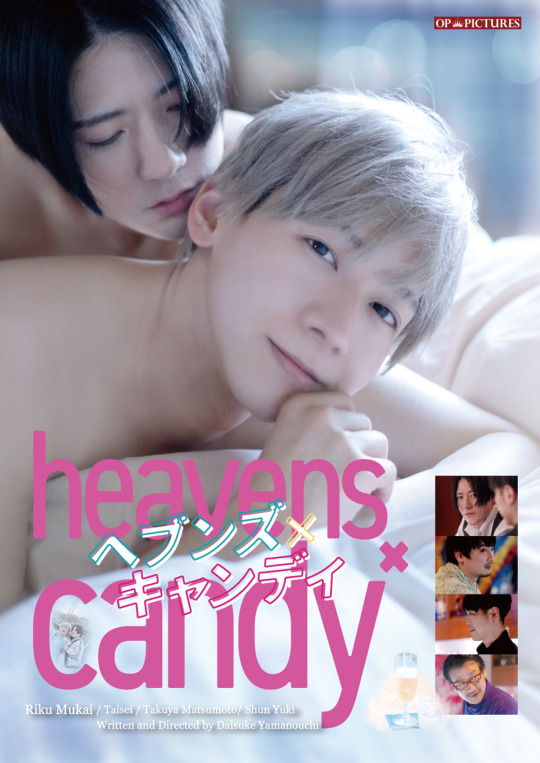
I now have greater hope for "hard" BL and even gei comi getting live action adaptation from OP Pictures (albeit without hairy, gachimuchi aesthetics. I mean the only actor doing such roles in BL is Kaji Masaki who acted in both KabeKoji and Smells like Green Spirit.) I plan to do a longer post on Heavens x Candy when I get time to rewatch it.
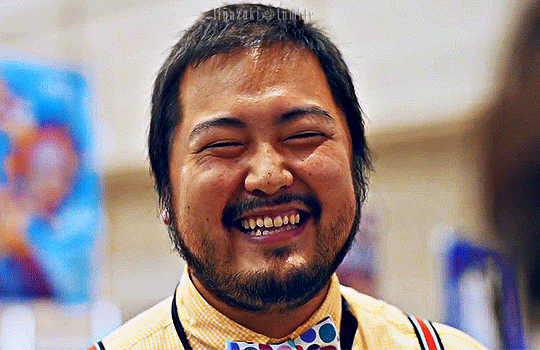



2. Fetishization of queer men in yaoi
By that standard, is Minamoto Kazuki fetishizing straight women through his works?

source
Minamoto Kazuki is a gay mangaka who creates straight romance and smut.

Arguably, his most famous manga, at least in BL fandom, is Wall Circle’s Doujin Artist Nekoyashiki-Kun’s Desire for Recognition Grows which got live action adaptation: KabeKoji in 2022.
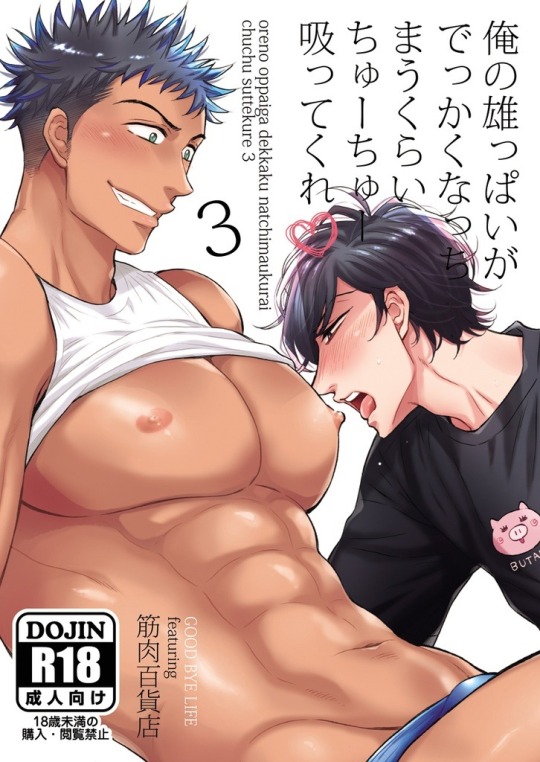
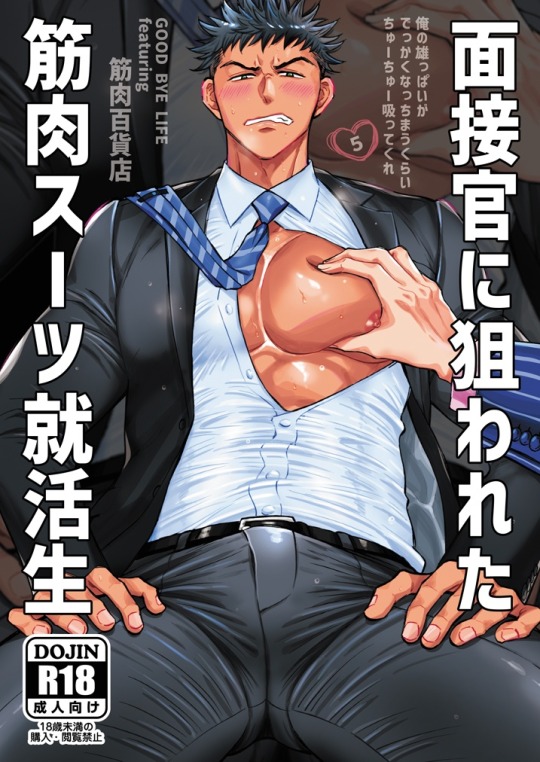
Apart from creating commercial BL and yaoi (self-published BL like the ones in the image given above), he has also authored an autobiographical work titled Shoujo Manga Artist Minamoto-San Comes Out and a manga exploring queer life and homophobia titled The Gay Who Turned Kaiju.
Moreover, many scholars, mangaka, fans, etc. from Asia and elsewhere have already spoken/written plenty about the issue of fetishization. Here's a compilation of resources.
3. zero critical consumption and leveraging of abusive concepts
I wonder why it is assumed that BL is consumed without critical thinking. It is true that BL, especially MAME's BL, are not didactic. TharnType is a BL with odo (royal road) narrative progression. It is not one of the sweet BL that GMMTV produces. Due to a general lack of BL literacies, there are off-the-mark expectations associated with BL, particularly Thai BL. Hence, odo BL seems to violate a lot of these misguided expectations.
TharnType is a well-done odo BL, in my opinion. "Leveraging of abusive concepts" is not a failure but a feature.
When it comes to depiction of abuse, there are those who think that it always gives the wrong message. There are variety in opinions on what is the right way to go about it. BL being an accommodating genre has space for all sorts of treatment. Even in live action, there is good variety in terms of how the theme is treated. But nothing is everyone’s cup of tea. This being the case it is understandable if someone like how MAME handles abuse, just as it is understandable if someone doesn't.
Assuming that fans don't engage critically with the theme and are mindlessly consuming it, have the implication of infantilizing the audience - as though they are without faculties of discretion and are incapable of making judgements. It also has the added implication of demonizing all media concerning queer people that deals with abuse. If MAME’s approach is deemed “unsafe” for queer population, based on that judgement, where does BL and gei comi that offer erotic treatment of abuse fall? What about queer people producing and consuming them?
That brings me to the points @nieves-de-sugui has raised.
4. how much all of these tropes where used (and still are). I believe that when things are made for tv they should take all the things you mentioned into account more than they do.
I believe that makers of live action queer content are very cautious. Thanks to that we are yet to get live action adaptation of any gei comi.
I have seen mainstream media ignore Gengoroh Tagame (probably the most popular gay mangaka creating content aimed at androphilic men) and his works for years in spite of his tangible influence on East Asian queer men. And then suddenly creating a live action adaptation of his all-ages manga My Brother’s Husband.
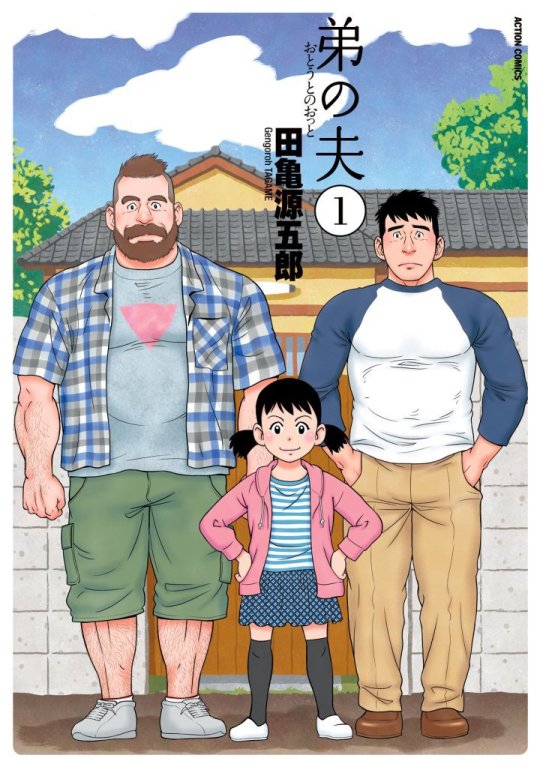
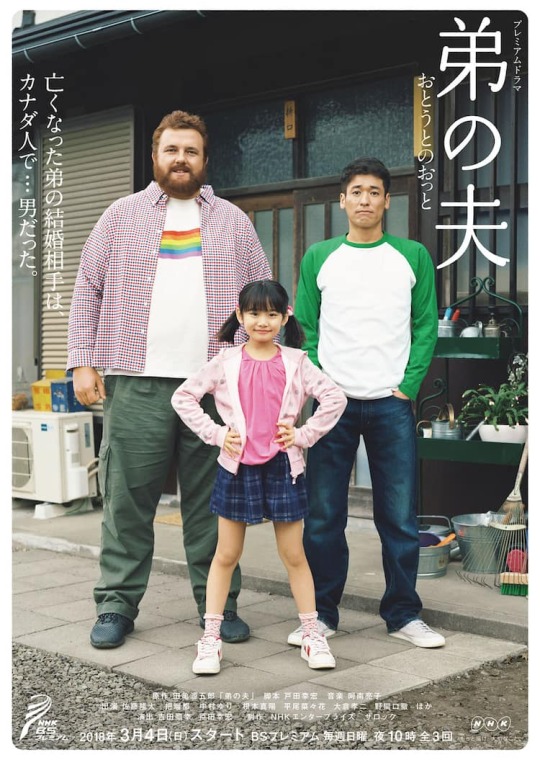
Who will dare to adapt his works Gunji or Fisherman’s Lodge or Pride? How can we show rape, trauma and taboo involving queer people on screen? What message will it give to the queer population? To the non-queer population?

A scene from Fisherman’s Lodge. Image courtesy of @finalatomicbuster.
If MAME was not involved in producing her BL, it is doubtful if it would have ever happened the way it did. Almost all BL adaptation is a censored adaptation, with notable exceptions like Sei no Gekiyaku. Recently, 25 Ji, Akasaka de (2024) removed complicated sexual content (including a dub-con episode) from the volume 1 of the manga, which was critical to the story and the couple’s development, in adaptation. Sukiyanen Kedo Do Yaro ka (2024) went as far as removing the more sexual second couple from the live action adaptation probably because makers thought it was better not to go anywhere near cruelty.
The first ever anime adaptation of a gei comi, Shin Yaranai ka based on Junichi Yamakawa's Kuso Miso Technique, is *sigh* disappointing to say the least.
youtube
I wanted to quickly mention What Did You Eat Yesterday yaoi version since @waitmyturtles mentioned the series.
5. What Did You Eat Yesterday
I want to highlight that What Did You Eat Yesterday was not a BL in publication. It was published in Morning, a conservative magazine for middle-aged men. This is what got a live action adaptation.
Fumi Yoshinaga has created a proper BL doujin series that includes content that couldn't be part of publication in Morning.
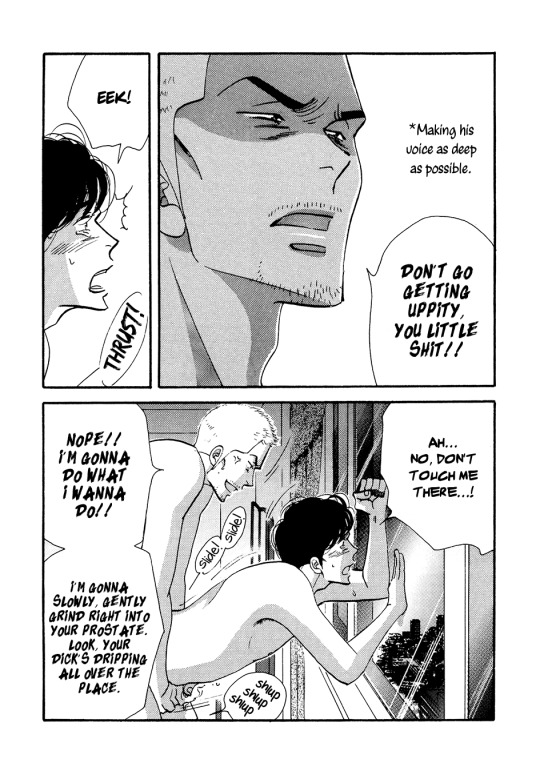


Here are some panels from the two latest volumes of the yaoi. I wonder if audience would have had the same impression of the show if they had incorporated the doujin bits too.
6. One piece of the puzzle that's missing here is Thai rape culture that blankets all of their society.
This is an important point @yousaygoodbyeandisay raised and it applies not just to Thailand.
Sexual assault as a theme in BL, handled in a myriad of ways, has been the case since the inception of the genre. I have discussed the history in the context of Japan here.
It was during the publication of JUNE magazine that the importance of depiction of sexual assault in BL became clear to the editor through response letters from readers.
June is a place of therapistic rehabilitation for those women who had experiences of mental and physical abuses as a female. Mr. Sagawa said that he cannot ignore that there are not a few readers who had such experiences during their childhood.
source
MAME studied BL and its production academically (you can find her research output by searching her name: อรวรรณ วิชญวรรณกุล) before she entered live action production. She not only know what she is writing/creating but also is willing to deal with difficult themes without taking sweet, fable-like route.
Now onto the points @mikuni14 raised.
7. my shock seeing so much SA related stuff (the show covered just about every problematic sex thing there is, and finally forgave the heinous criminal instead of putting him in jail. I don't know how MAME can create for example AePete and also somany vile things
For those who don’t know, MAME is a unique Thai BL creator. Thai BL creators on average lack BL literacies for various reasons. MAME is one of the exceptions. This is because:
she is a BL author & hence, one of the creators of BL literacies
she studied BL and its production academically [you can find her research output by searching her name: อรวรรณ วิชญวรรณกุล]
then she started producing live action BL
In an industry which is lacking in BL literacies, what she brings to the table is fu-culture (BL fan culture) in all its glory. Unfortunately, the live action audience who are fans of sweet BL, have a hard time adjusting.
Here are some typical narrative progressions for a (Japanese) BL:
あまあま – sweet
ユニーク – unique
シリアス – serious
邪道 – evil road (jadō)
王道 - royal road (odo)
Any theme/one-line plot can choose to take any of these narrative progressions. Moreover, Thai BL usually originates online which allows for innovation.
MAME employs different narrative progressions for different ships. AePete follows the typical sweet BL progression. KengklaTechno follows jado and TharnType odo.
TarTum is a sweet BL, complicated by them being step-brothers. While their pairing is barely on odo, Tum as a character has a complicated odo progression within their ship.
Since TharnType is an odo BL all wrong-doings are not punished. Take for example KinnPorsche, another odo BL, where the ending can’t be 'organized crime gets the main characters in jail'. In odo BL involving crime, most of the victims are usually cannon fodders. So, characters are not bothered much by the crime. But in MAME's universe, Tum is an important character, someone designed to make audience root for him. Hence the audience can’t dismiss the crimes against him. It is not wrong to want the narrative to have Lhong jailed. If TharnType was a sweet BL, it would have gone there.
8. selective memory
Selective memory is indicative of preferences and it helps to fine tune BL consumption. MAME's storytelling incorporates diverse elements. Those who enjoy her works also might find that there something or the other that isn't to their taste. This is an important part of BL literacies.
I enjoy dangerous characterizations over subdued ones and prefer a meriba more than a happy ending. While there are plenty of BL media with those, they are super rare in live action. So, I appreciate MAME for taking into account fans who want something different from sweet BL.
Here are the points @bengiyo raised:
9. What Did You Eat Yesterday v/s Old Fashion Cupcake
This has nothing to do with MAME but has to do with BL literacies more generally. Old Fashion Cupcake is more appealing to BL fans because it is a BL and hence not sanitized to continue run on a conservative magazine. So, it permeates moe (affect). Moreover, creators of Old Fashion Cupcake are better informed than creators of What Did You Eat Yesterday in terms of BL literacies. So, the direction and acting works better in the former than the latter.
9. The Effect feeling like the first huge volley leveled at BL from within the genre.
I am always amazed at the takes on the Effect. Somehow it is assumed to be a critique of BL genre. That's not the case. The Effect is a proper jado BL.
What audience are picking up on is the 'I can do it better' spirit that motivates a lot of BL creation. It is natural for audience to feel like the depiction of complex themes, such as sexual abuse, bullying, delinquency, identity theft, murder, infidelity, pregnancy, etc. are not dealt with well. Creating BL that fits one's taste better is one way authors and artists go about addressing the issue. That is how we end up with same theme dealt with in numerous ways. When that expands, we end up with sub-genres and BL categories.
Jado BL are rare, particularly in Thai BL.
It is difficult to sell BL with jado and other narrative progressions. It becomes even more difficult to sell branded pairings when the characters they play are not impeccable. It is unlikely that actors playing bad guys can sell products for advertisers. (Imagine the characters from The Effect being in ads together!) It is even more unlikely that fans would go broke behind wicked characters and would want to attend fan-meetings and concerts featuring them in some way.
This is also so as not to trouble the average audience’s worldview (世界観) and is clearly a low effort and low skill (in terms of BL literacies) approach. But since a lot of audience don’t appreciate villain-like characterization, it is clearly low risk, no chance of a backlash from angry audience and the best method for assured money making.
@respectthepetty has also flagged the next issue:
10. History3: Make Our Days Count.
Gays were being buried and put in prison in Taiwanese BLs in the same year it legalized marriage equality.
There is a lot of ethnocentrism in the hate that MODC gets, apart from lack of BL literacies. While I understand where that take is coming from given American media history in the context of Hayes code, AIDS crisis, etc., I wish media from elsewhere would be looked at independently.
Queer narratives everywhere have their own over-used tropes and historical issues. Malayalam media, for example, has the issue of having one of two queer characters having varathan vibe (Rosy in Ponnaranjanam, Kiran in Sancharram, Antony's boyfriend in Mumbai Police, Kiran in My Life Partner, etc.) that makes them look odd in Kerala's rurban landscape. Even Kaathaloram played into this trope. The problem is that it perpetuates the belief that queerness is an import of sorts.
Mindless application of media critique learned from the west leads to the brushing aside of pertinent issues with media of the region in favor of finding legitimacy via commonality with the west. That way we end up with crits accusing Moothon of employing bury the gay trope while ignoring that:
Moothon is a gangster action flick like Kammattippaadam
It is rare for romances irrespective of the gender of the main characters and genre of the movie to have happy ending in Malayalam. In fact, almost all great love stories in Malayalam movies are tragedies. This is unlike in Hollywood where heterosexual romances usually get happy endings.
more importantly, every queer character, including Latheef, is infused with varathan vibe.
Taiwanese BL has issues worth exploring. Issues of their own media - not varathan queer trope from Malayalam media or bury your gay trope from American media.
MODC was an dealing with well-established BL tropes (like any other show in the History franchise). It explored bereavement (a tribute to Lan Yu, first ever danmei live action adaptation) and substitute lover trope.
The series introduced a doppelgänger of Yu XiGu (Xiang HaoTing’s white moonlight), a perfect candidate for substitute lover trope. But instead of pursuing it, they subverted the trope.
History franchise, which was build to grow BL and BL literacy in Taiwan, ended up victim to prejudice since it failed to measure up to foreign standards. MODC offered something rare. The audience didn't appreciate it. They dismissed it for not measuring up to expectations colored by experiences which danmei is not connected with for historical reasons.
By that standard, would tongzhi literature from Taiwan too have to make amends for sins of the west towards its queers? Imagine stripping of death as a theme from tongzhi author Chiang-Sheng Kuo's works! Then there is also difference in how death is perceived in different societies.
Why must BL be arm-twisted to fit into norms from elsewhere and correct the wrongs of someone else?
11. BL profit off LGBT community
This is really interesting. There are many questions that I can think of that is linked to this take:
Is BL really profitable? Short answer is no. Long answer here.
Is it really LGBT community that BL profits off?
Probably not. It is moe that BL sells. That imo, is the main difference between BL and other queer genres.
Anyway, BL predates LGBT acronym. It predates de-pathologization of homosexuality in many BL creating regions. Fu-people were creating BL before mainstream media started representing queer people in media. Fu-people battled state and its censors everywhere along with queer people. Live action BL surely is commercialized. But that is capitalism reaping the dividends of decades of fu-people's labor of love.
@he-is-lightning-in-a-bottle raised the following point.
12. 2019 saw significant increase in quantity and quality of BL. Since then, live actions smoothed out the rougher edges of the source material (like what happened with Kinnporsche and Love in the Air).
While I understand the rational behind toning down dangerous characterization to appeal to the largest audience, I think that kind of censorship for commercialization limits potential of the genre. The impact is most visible in case of GMMTV BL such as Only Friend (where it could neither be sweet BL nor could it embark properly on jado).
Compare it with adaptation of the ero-BL Sei no Gekiyaku. It stayed true to the content and pushed the boundaries enough to bring about convergence between gay pinku cinema and BL. When BL is allowed to explore its potential freely, it not only imparts BL literacies but also makes it possible for other queer genres to gain new audience, which in turn encourages production houses to venture into different queer genres.
jjsanguine raised the following point.
13. I don't even hate toxic characters or plotlines, actually I love them. But like even if the characters don't know they're doing it, the show should. And it really really doesn't. And neither do the fans. Kind of alarming.
This is in relation to Lhong and San.
Lhong is a yandere in a odo BL. (for detailed discussion see Part 3) It is a matter of the world view and less about show's self-awareness (which I believe it has). If TharnType was an jado BL, Tharn could have ended up with Lhong and Type would be the stalking horse.
@jjsanguine later commented about how Lhong felt "goofy" by way of his over-the-top actions which made the show's convictions questionable.
San and Tharn's relationship was, to an extend, the most realistically depicted. I remember starting to learn about Thai queerness and realizing that a lot of elements in their relationship reads like ethnography. Consider for example Tharn being only fourteen at the time of sexual debut and San being older. This is not too different from the average age of sexual debut in Thailand. Despite it being a compoundable offense, average age of sexual debut is declining. Tharn's discovery of what he likes and dislikes and shedding cuteness (which San comments about) and adopting manliness (which Techno comments about) too is in line with what is observed among urban queer youth. Contrast this with Sky in Love in the Air whose sexual debut and exploitation are tied to his migration to urban landscape. Sky's backstory too read like ethnography and his vulnerability a reflection of the many others' in his society.
@absolutebl raised the following points:
14. Rape - as plot device - doesn't make good stories - lazy & bad writing: Feminist critique and modern narrative analysis.
Feminist and queer BL scholars from Akiko Mizoguchi to James Welker have discussed rape as a plot device in BL. Since experts have written plenty, I'll spare my effort discussing this misconception.
15. rape is an act of sexuality (or worse, sexy), it is NOT - it is an act of violence. But that is only the start to the way it’s chronically mishandled, especially in commercial fiction (of which romance makes the largest percentage).
Akiko Mizoguchi's two decade of work have addressed this in relation to Japanese BL which I feel holds true for BL more generally. Moreover, BL is not a romance sub-genre. BL is a genre in itself. A lot of BL is romance. There is enough overlap between those genres to give the impression that BL is a romance sub-genre. But there are plenty of other works too. Like One Room Angel and Social Reform Season. Similarly, BL is not a porn sub-genre. A lot of BL is porn. But come on!
16. [MAME] produces consistent highly-profitable narratives by-and-about queer folks but utterly disingenuous to the queer experience and that defines exploitation in the ET industry... Right, just adding that yes BL does not represent (in any way) the reality of being queer in any of these countries.
I have already discussed how MAME's works are intersectional reflections of queer experience. BL has been reflecting different queer experiences in Japan even before the term boys' love emerged. But narrow, ethnocentric ideas of queerness doesn't lend itself to honest understanding of other forms and representation. Consider characters being addressed as เมีย ‘wife’. It is a Thai queer practice. One can always dismiss that since it sounds heterosexist in the culture one comes from as absolutebl does in this post. That, imo, is 'disingenuous to the queer experience' of Thai people.
The question is what are westerners missing in their own countries' queer media that they feel they must just judge everything with no care for the cultures and people producing content for themselves? Seriously, what have the westernization done to some in the audience that they emerge so desperate for queer content that they watch BL yet remain blind to the cultures (fu-culture in particular) that produce them and splooge vitriolic ethnocentrism?
-
That concludes this discourse series. I want to sincerely thank everyone who contributed to and inspired this 🙏.
Other parts: Part 1 | Part 2 | Part 3
#mame#love sea the series#love by chance#tharntype#love in the air#wedding plan the series#love sea#bl thai#thai series#thai bl series#thai bl meta#thai bl#love in the air the series#bl tropes#bl trivia#bl literacies#asian lgbtq dramas#asian bl series#asian ql#bl meta#bl analysis#bl trope analysis#bl drama#thai ql#tropes#bara manga#gei comi#thai boys love#thai drama#asianlgbtqdramas
93 notes
·
View notes
Text


Strange and wonderful things happening in the reviews of this random Taiwanese romance movie
52 notes
·
View notes